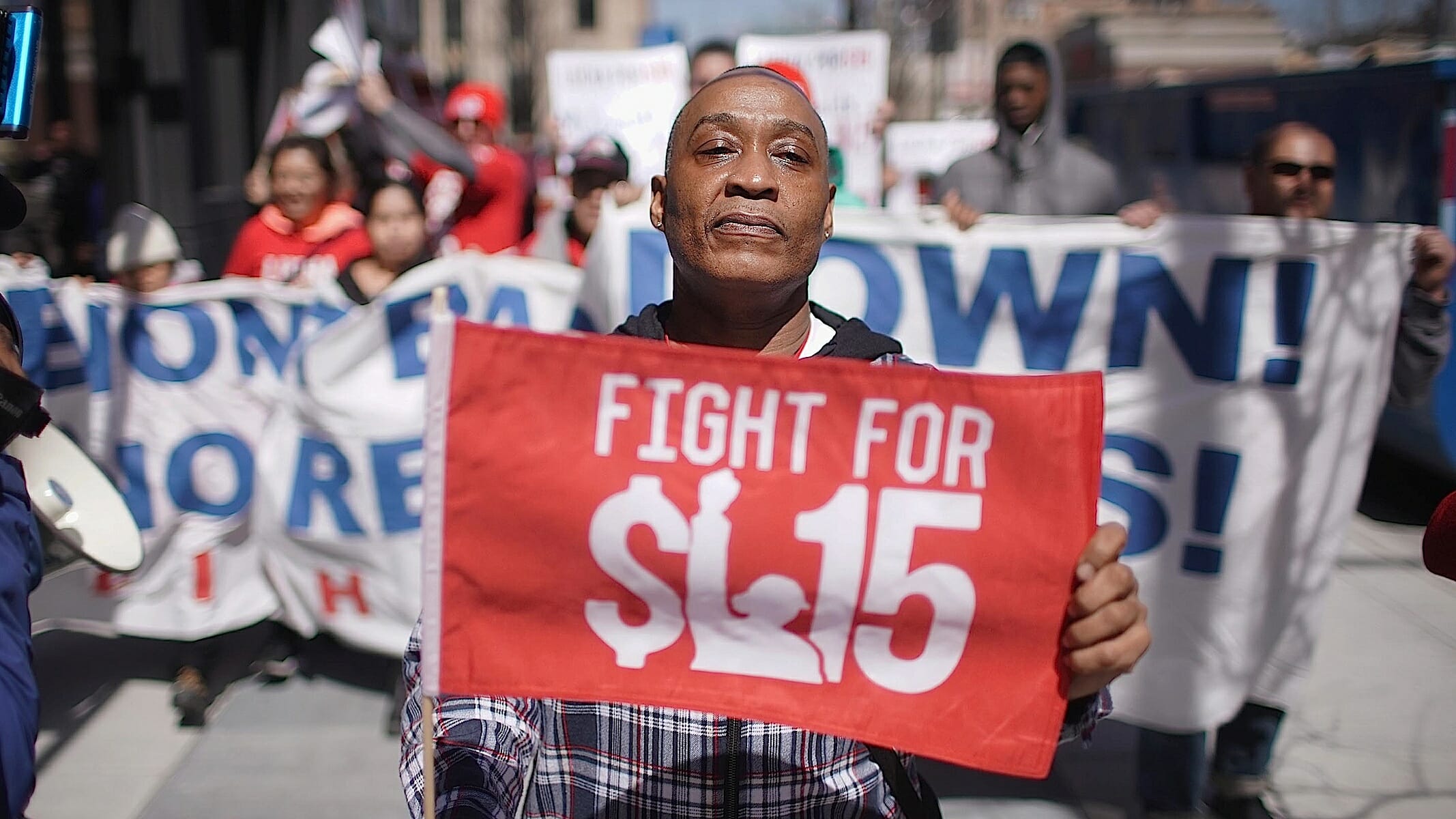Activism Works: Connecticut Becomes Latest State to Pass $15 Minimum Wage
Photo by Scott Olson/Getty
Connecticut Gov. Ned Lamont signed a bill today that will raise the state’s minimum wage from its current $10.10 rate to $15 per hour by the beginning of 2023, with intermediate steps at the beginning of each year. When it reaches $15 per hour, future wage changes would be tied to the federal Employment Cost Index, meaning it will be subject to further, less volatile adjustments. The change will affect about 330,000 workers in the state, and the first bump, to $11/hour, will happen in October. For comparison’s sake, a $10.10 wage is the equivalent of a $21,000 yearly salary, if the worker puts in 40 hours per week, while the $15 wage yields $31,000 per year—a $10,000 disparity that can lift a worker out of poverty.
Republicans fought tooth and nail against the bill when it passed the House of Representatives earlier this month, staging a 14-hour “debate,” but they didn’t have the numbers. The Senate did likewise, tapping out after six hours, but the result was the same, and in the meantime Democrats in the chamber told stories of growing up in poverty, and how even the $15 wage might not always be enough even if passed. Lamont, who campaigned as a centrist in many respects, nevertheless supported the bill from the start, and today’s action was no surprise.
The effort to pass this law in Connecticut was local in some respects, but in truth the state is the latest domino to fall in a nationwide movement that has resulted in about 30 percent of America’s workers now living in states with a $15 minimum wage. Vox documented what led to Connecticut’s bill, arguing that it began with “frustrated McDonald’s workers in Illinois and New York”:
The workers’ movement, called “Fight for $15,” organized strikes and rallies all across the country. But they saw little success until 2016, when California became the first state to hike hourly wages to $15, followed by Massachusetts, New York, and Washington, DC.
Business groups are not happy about the fight for $15. And neither are their Republican allies in Congress. They’ve long pushed back against any effort to raise the wage floor at the federal level, claiming it would destroy small businesses and trigger massive job losses.
It’s getting harder and harder for Republicans to justify their view that free-market capitalism will take care of everyone. Their belief is that when the economy grows and unemployment is low, employers will be forced to raise wages. But even workers who already earn $15 an hour struggle to raise a family, so it’s no wonder that workers who earn less sometimes end up living on the streets.
This year, McDonald’s said it would no longer lobby against wage increases, and the success of state bills—along with studies that have deflated Republican fearmongering by showing that increased wages don’t cause unemployment, but very much do reduce poverty for millions of people, and polls that show that even a majority of Republican voters support the measure—makes it easier and easier for states under Democratic control to pass these laws, and harder and harder for others to resist.
Connecticut is the seventh state to adopt a $15/hour wage, following California, New York, New Jersey, Illinois, Maryland, and Massachusetts (as well as Washington D.C., with Rhode Island likely coming next), and while these are all liberal states, each successive passage makes it more and more likely that popular pressure will increase everywhere.